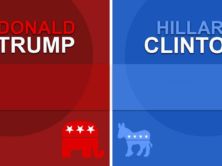
(Credit: Pixabay)
A New York Times article on Saturday announced that “A highly anticipated poll of Iowa Democrats, set to be released two days before the presidential caucuses, was shelved on Saturday night because of concerns about irregularities in the methodology.”
The poll was sponsored by CNN and the Des Moines Register, and conducted by J. Ann Selzer’s polling company. Selzer is widely respected for the accuracy of her polls and, while agreeing to the cancellation of the poll results’ release, she called it “gut wrenching.”
A supporter of Pete Buttigieg happened to be called as part of the poll and reported that they had not heard Buttigieg’s name mentioned as a candidate. An internal investigation apparently confirmed that due to an electronic glitch, it was possible the report was correct. It was unclear if the glitch was an isolated one or if other candidates’ names had also been omitted.
Thus, the cancellation. According to Carol Hunter, executive editor of the newspaper, “It is imperative whenever an Iowa Poll is released that there is confidence that the data accurately reflects Iowans’ opinions.” Selzer released a separate statement that said, “The decision was made with the highest integrity in mind.”
Kudos to the Des Moines Register, CNN, and J. Ann Selzer for that decision.
Does It Matter?
Of course, it matters that the two media organizations and the pollster were all in agreement to adhere to the highest ethical standards by not releasing data that might be faulty. And in these days, that is not a trivial conclusion.
But does the lack of a last-minute poll of caucus voters, even by a polling organization with the stellar reputation that Selzer enjoys, matter to the voters or, separately, to the public?
For some voters, especially in primary/caucus elections, poll results can help them choose which candidate to support. In multi-candidate elections of the same party, voters may find two or more candidates to their liking. The decision as to which one to vote for may well be affected by how well their first choice candidate is doing in the polls.
Such voters are referred to as “strategic voters,” as they try to determine how to maximize the impact of their vote. There’s no point in voting for someone, for example, who’s barely attracting support if there is an equally acceptable candidate who has a chance of winning.
Not all voters, of course, are “strategic” in their thinking. Many will support a given candidate regardless of the candidate’s chances of success. But enough voters do consider poll standings in their decision, so that poll results are important to them.
According to RealClearPolitics, Sanders and Biden seem to be at the top of the pack, with Buttigieg and Warren essentially tied for third place. Thus, one can understand why the Buttigieg campaign would be concerned if it thought Buttigieg’s support were underestimated by the poll, perhaps leading some voters to turn to their second choice.
In the last several days, polls have shown Biden over Sanders by 6 points, and Sanders over Biden by 7 points. One of the latest polls shows Warren in second place ahead of Buttigieg and Biden by 6 points, while another shows her in fourth place by 9 points each behind Sanders and Biden, and behind Buttigieg by 5 points. In one poll, Klobuchar was in third place, slightly ahead of Buttigieg and Warren.
Would the Des Moines Register/CNN poll have shown a different pattern – so significant that it could cause some voters to change their vote from what they had been thinking?
Welp – we’ll never know.
As for the 99.9999% (perhaps a slight exaggeration – but not much) of Americans who are not voting in the Iowa Caucuses, the loss of the Des Moines Register/CNN poll probably won’t cause much heartburn. We can wait a day or two for the election outcome. After all, by Monday evening (or Tuesday morning), the only polls that count (as they say) will be the actual vote results.





